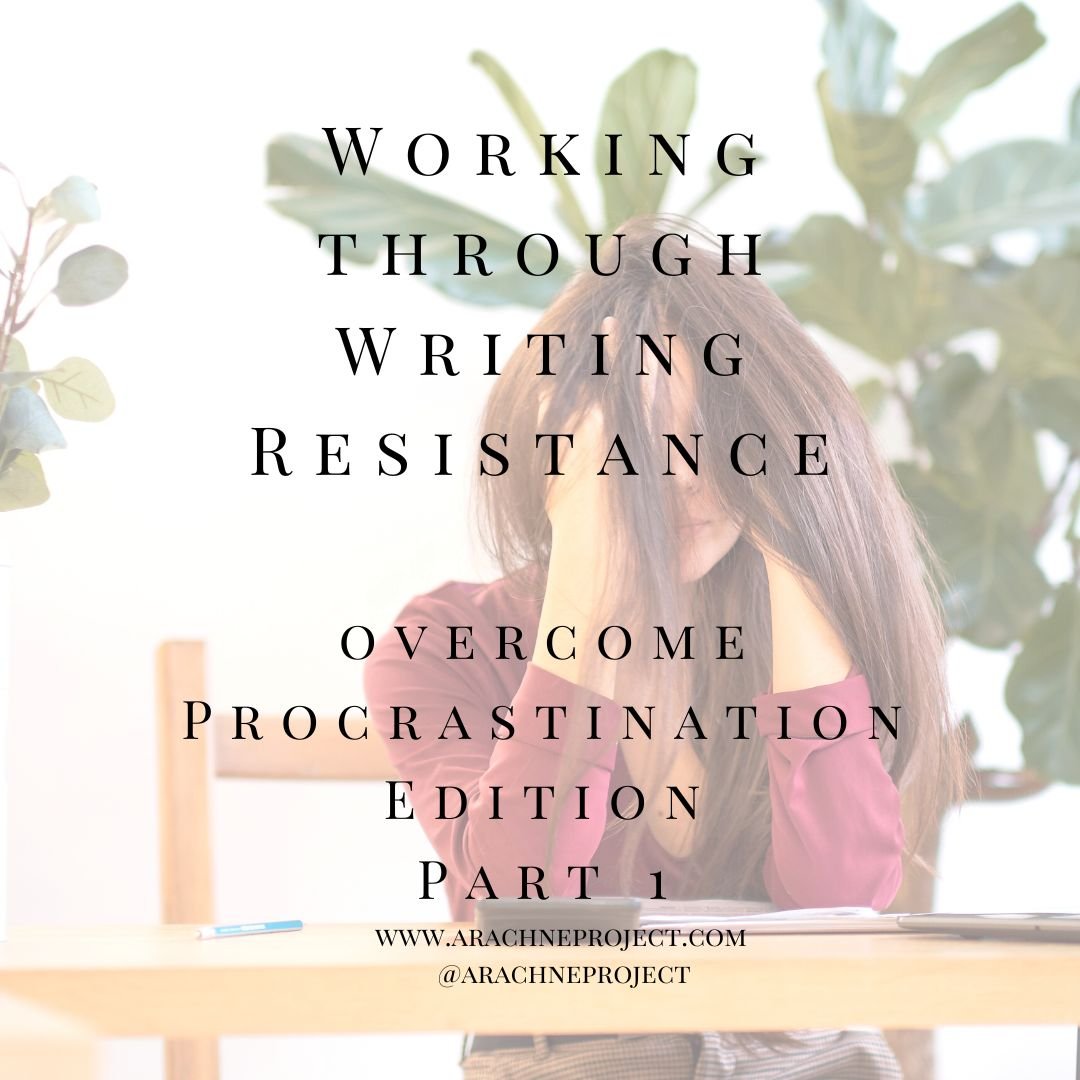Working Through Writing Resistance - Overcome Procrastination Edition Part 1
I work with perfectionists a lot. I seem to attract them at all stages of their journeys. And that’s probably because I used to be a perfectionist myself.
If there is one thing a perfectionist can’t stand, it’s their own imperfection. They tend to deal with their creative resistance head-on. They want all the solutions, they want them now, and they want an A+ when they show me their homework.
These talented, super organized, goal-oriented writers blow me away with their industry knowledge and ambitious goals. So when they come to me with a strategic plan in hand wondering why they can’t stop procrastinating when they know exactly what they want and how to get there, I really want to help.
“Writing is my thing! I’m supposed to be good at this. What am I doing wrong?”
“My road map is in place, so why can’t I get moving?”
“If I want this so much, why do I keep putting things off until tomorrow and the next day and the next?”
Well those are all very good questions.
And if the answers were simple, no one (especially not a perfectionist) would struggle with procrastination.
Someone once said “procrastination is the thief of time.” And I concur. It has stolen years from my life, and I don’t love watching writers I care about beating themselves up over the years it has stolen from them.
But I do feel hopeful and a little excited when a writer comes forward to do this work, because it means they haven’t given up on themselves. It means they are still saying yes to the ups and downs of their calling to write, and that means they can still turn things around. It’s a fact that the people who make it are the ones who don’t quit.
I hate telling them it’s not going to be easy, though. That it could take months, maybe even years to figure it out. Mainly because there is no figuring it out. Figuring it out is a mental thing. And though perfectionists love to overthink things, you just can’t think your way out of procrastination. Like a lot of creative resistance issues, you have to FEEL your way out. And people are so uncomfortable with their unpleasant feelings they’d rather do ANYTHING than be present in a room with them or share them with a complete stranger.
They’d rather try to build “habits for success.” (If I lay out my writing pants before bed and jump into them while my coffee is brewing, maybe I can write 2000 words before a) the kids go to school, b) yoga starts at 9am, c)the dog starts bugging me for his morning walk.)
They’d rather fill out a strategic plan and transfer it painstakingly into a ruthlessly organized and, may I add, stunningly decorated planner. (Eff it, I just got some new Tarot stamps for my planner and spent my writing time trying them out. It’s me. I’m still people. I’m still a perfectionist. And I’m not ashamed to admit it.)
They’d rather just use their willpower to stop procrastinating. I can do it. I’M DOING IT, SEE? I’M DOING IT! … (*crickets for three solid weeks*) … So, I fell off the bandwagon, but I’m definitely going to do it this time.
They’ll even beat themselves up over it day after day. (I won’t say they would rather do that. It’s generally not conscious. But it does become a pattern easier than those ‘habits for success” because it’s so emotionally charged.)
I think the hardest thing about dealing with procrastination (and coaching people through it) is that all these things seem to work pretty well some of the time. So they are hard to let go of.
You can actually build habits that make it more likely for you to show up to writing when you don’t feel like it.
Using a planner consistently can give you some visual feedback about how realistic and measurable your desired habits are. If you like to check things off a to-do list, that can give you a little dopamine boost that pulls you through a tough day. And if you love art and markers and stickers and things like that, keeping a planner can be super fun. (Which is why I lovingly call it procrasti-planning.)
We all have things we hate to do, but we just have to do them, and willpower exists for moments like that.
Even negative self-talk can get us to perform some of the time.
But that doesn’t make it consistent. And that’s the problem. Procrastination is sneaky and sticky. It comes back over and over again, when you least expect it and eventually it will show up when you’re least prepared to deal with it.
So next up in this series, I’ll share WHY these strategies don’t work consistently. Because the reality is that you’re going to keep coming back to them. Since they’re familiar and they do work sometimes, you really need to understand why you can’t count on some things to save you so that you can change your approach before you waste too much of your precious time. To wrap up the series, I’m going to give you some tools and processes that work more powerfully and more consistently that you can turn to when you find yourself sliding back to your old ways.

